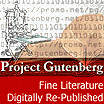The Socratic Method and Accountable Talk
Questioning technique has always been a key focus of mine (as well as most teachers.) While I have always been a firm believer in the value of rote review, I hold that understanding why things are what they are, provide learners with much wider ability to apply memorized data. How to get content across to students, in ways that provide them with the tools/skills to apply that learning to other areas, is the ultimate challenge.
I just read a wonderful online paper by Rick Garlikov on The Socratic Method Teaching by Asking Instead of by Telling. I came across is while using Stumbleupon. I'll discuss Stumbleupon in another post.
Mr Garilkov details an experiment whose objective was to see whether he could teach these third grade students binary arithmetic (arithmetic using only two numbers, 0 and 1) only by asking them questions. None of them had been introduced to binary arithmetic before. He gives a line by line transcript of the lesson. It is very informative! He guided the students gently and with subtle encouragement, to understanding a concept that college students struggle with!
His web site (http://www.garlikov.com/writings.htm) has more of his work and is definitely worth checking out.
The Socratic Method is compared to the Scientific Method by James Dye here.
There is also a very interesting web site worth reading on using The Socratic Approach to Character Education. This article originally appeared in Educational Leadership (May 1997) David H. Elkind and Freddy Sweet Ph.D. On the site, there is a guide to Planning a Socratic Lesson and Facilitating a Socratic Lesson.
I know Socratic Method is not in the forefront of teaching methods at this moment, but I definitely see the value of exploring it especially in the quest for accountable talk. Check out Facilitating Accountable Talk in Your Classroom by Arlyne LeSchack.
Evaluation is the final assessment on the success of any lesson. A simple student created self assessment rubric I found was done with a second grade class is here in HTML: Response to Literature- Grade 2, page 21, and here as PDF: Response to Literature- Grade 2.
I'd love to read some of your experiences with the Socratic Method. Please comment and share!
Post a Comment 2 Chain Reaction(s)
Click here to read An Educational Voayage's newest Blog Posts!









2 Comments:
I read about this experiment a while ago, and it made an expressionon me. The trick for me is to get the older kids to be patient enough to let it unfold.
Not to mention to be able to let go and take the risk of giving an answer which isn't obviously or immediately "right."
Sorry, I didn't sooner. I'm trying to catch up now!
I understand the rist element. But most of the time it is worth taking it.
Thanks for responding!
Post a Comment
<< Home